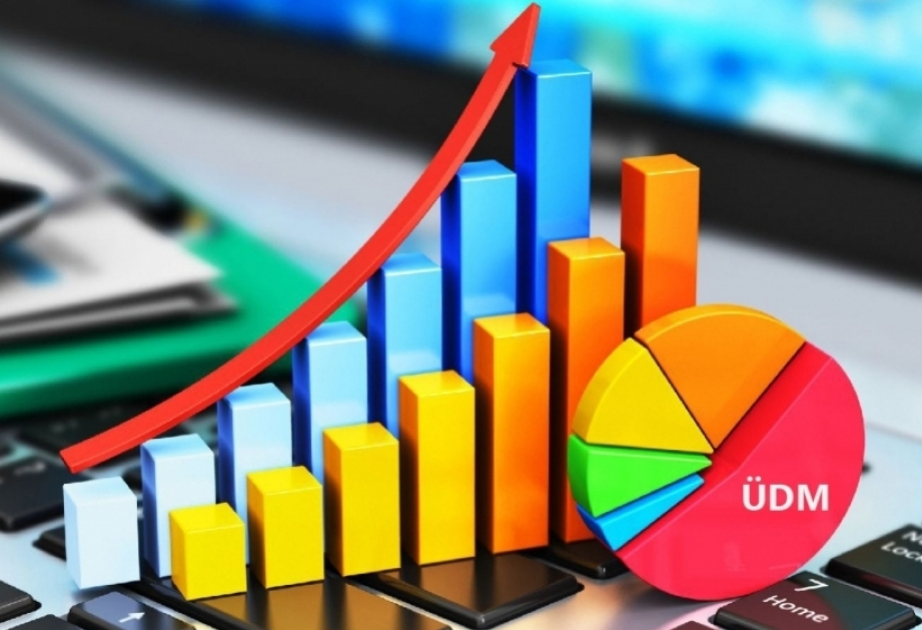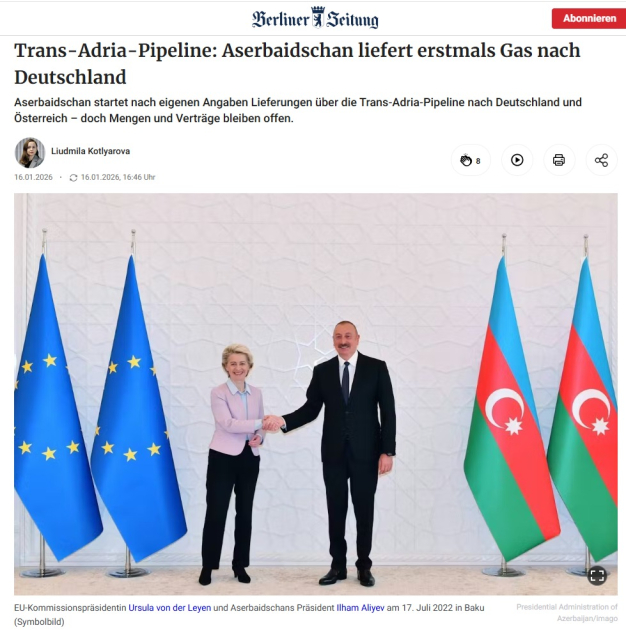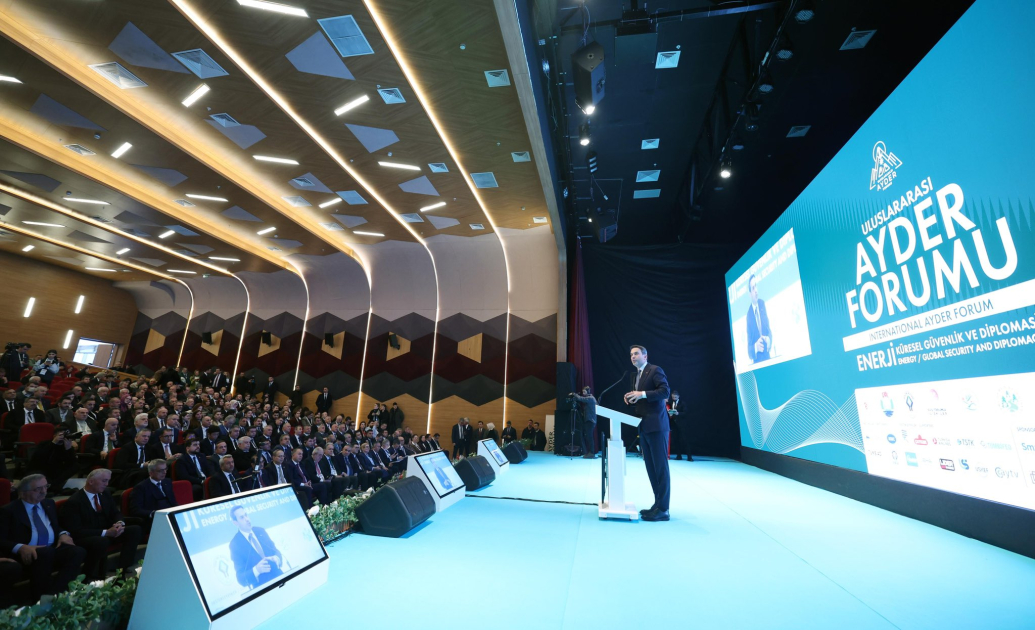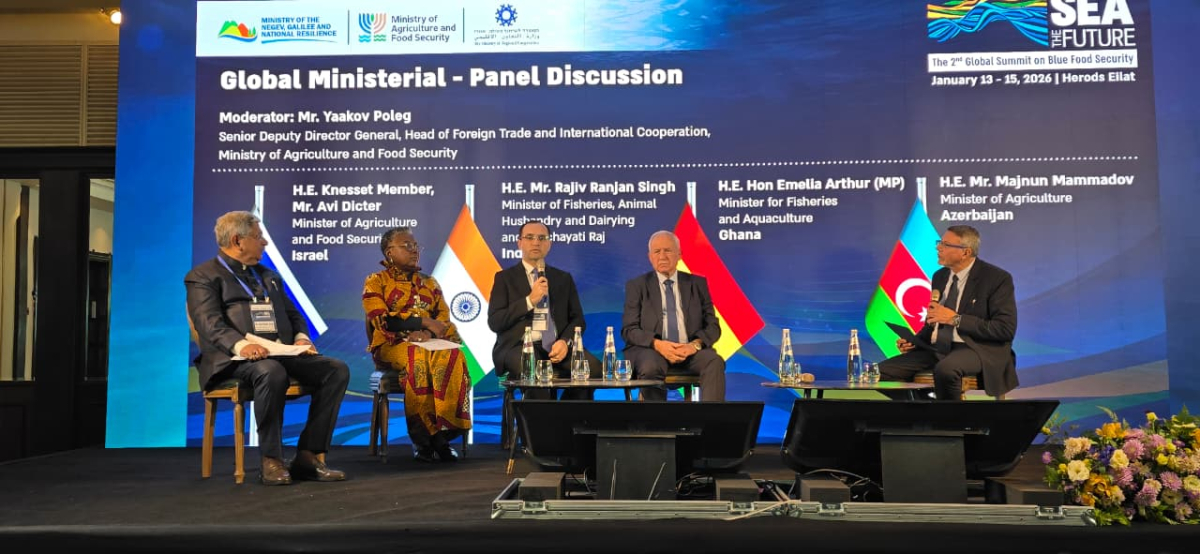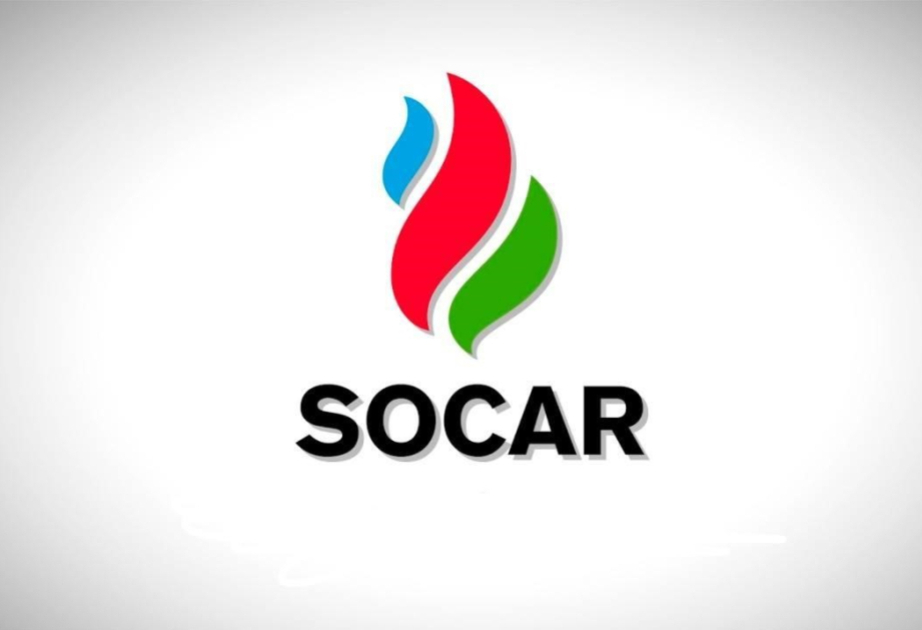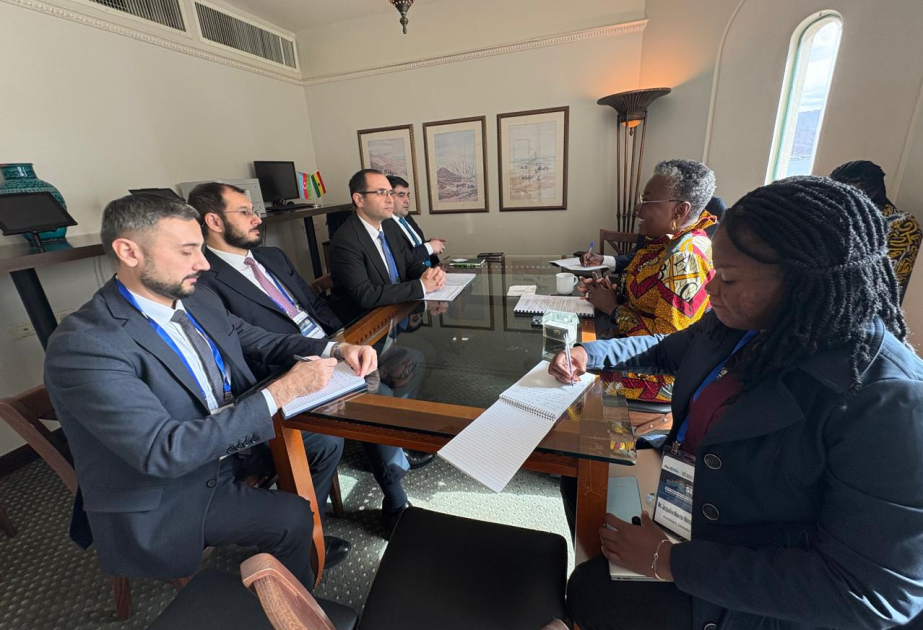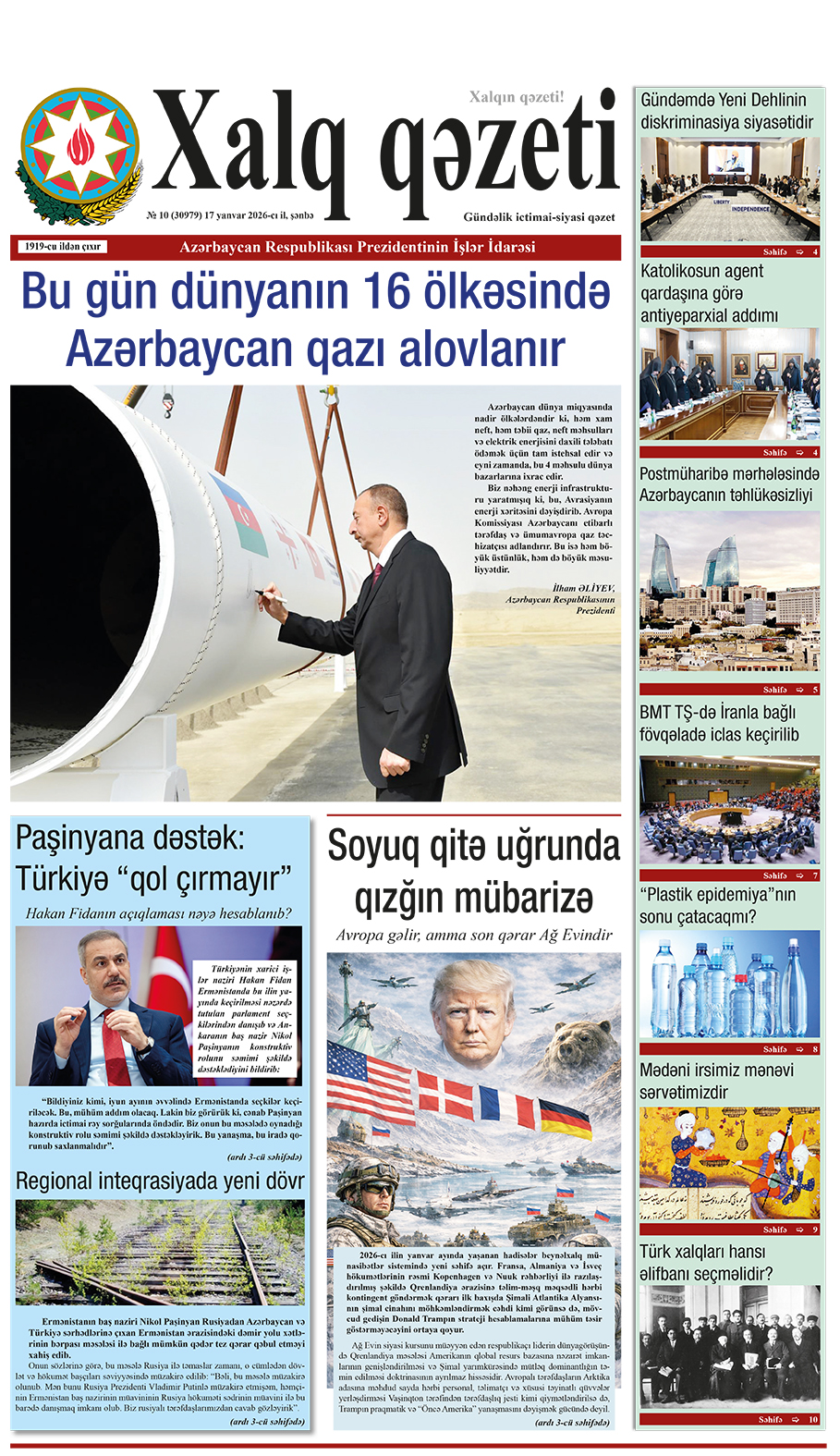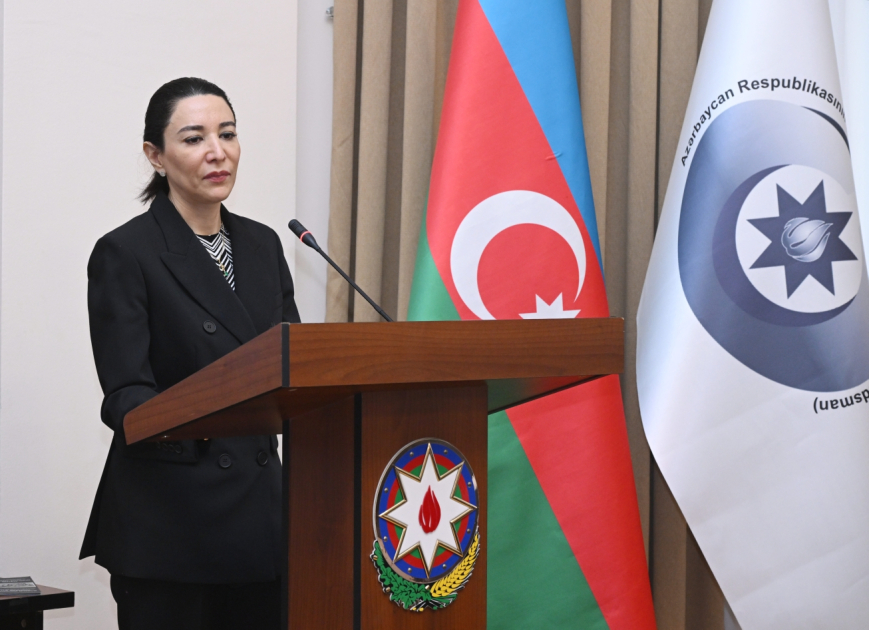The Azerbaijan State News Agency (AZERTAC) presents an interview with Tal Katran, Israeli expert, managing partner of the “Invest to Create” platform, specialist in technological innovations.
-How do you assess the current state of economic relations between Israel and Azerbaijan? What key sectors are currently developing most actively within the framework of bilateral cooperation?
- Azerbaijan and Israel have cultivated a multifaceted partnership over decades, characterized by strategic alignment in energy security, technological exchange, and regional diplomacy.
Israel and Azerbaijan trading relations have been steadily growing over the past years. Beyond trade in goods, the relationship is expanding into key sectors such as technology, agriculture, and water management. Israeli expertise in precision agriculture and
water-saving technologies is increasingly being integrated into Azerbaijan’s agricultural modernization efforts, supporting sustainable growth and food security. Additionally, cooperation in healthcare technology and digital infrastructure is gaining momentum, reflecting a shared commitment to innovation and improving quality of life. Azerbaijan’s expanding role in Israel’s energy sector, agricultural goods and chemical products, particularly through SOCAR’s involvement in offshore gas exploration and energy projects, underscores the importance of hydrocarbons in bilateral trade.
This dynamic and evolving cooperation not only enhances bilateral trade but also fosters innovation and sustainable development, reinforcing the solid foundation of the alliance between the two nations.
-What do you see as the uniqueness of the economic partnership between Israel and Azerbaijan compared to other countries in the region?
- The economic partnership between Azerbaijan and Israel is unique in several key ways that distinguish it from other regional relationships:
• Strategic Energy Collaboration: Azerbaijan is the major supplier of Israel's oil imports, making it a critical energy partner for Israel’s energy security. This role is further enhanced by cooperation in gas field development.
• Comprehensive Sectoral Cooperation: Beyond energy, the partnership spans diverse fields including defense, innovation, agriculture, tourism, digital economy, water management, food security, and health.
• High-Level Political and Economic Engagement: The relationship benefits from sustained high-level visits, joint commissions, and business forums that facilitate expanding trade and investment.
• Gateway to Broader Regional Integration: Azerbaijan serves as a strategic access point to Central Asia, positioning the partnership as a bridge for broader economic and multilateral cooperation beyond bilateral trade.
• Shared Innovation and Sustainability Goals: Both countries are exploring renewable energy and green technologies, with Azerbaijan integrating renewable energy in its development plans and Israel contributing its expertise in these sectors, signaling a forward-looking, sustainable dimension to their economic ties.
Azerbaijan-Israel economic partnership stands out for its broad sectoral collaboration, and its role as a gateway for regional connectivity, all underpinned by a shared commitment to innovation and sustainable development.
-To what extent are Israeli investors interested in the Azerbaijani market? Which segments are of greatest interest to them?
- Israeli investors are increasingly recognizing Azerbaijan as a strategic partner, with bilateral trade reaching $1.15 billion in the first seven months of 2024, a nearly 40% increase from the same period in 2023. Over 100 Israeli companies have established operations in Azerbaijan, contributing expertise in sectors like agriculture, education, and medicine.
Key areas of interest include agriculture, where Israeli irrigation technologies are enhancing productivity, and renewable energy, with joint projects in solar and wind power underway.
The healthcare sector is also attracting Israeli investment, focusing on medical technologies and pharmaceuticals.
Notably, Azerbaijan's State Oil Company (SOCAR) acquired a 10% stake in Israel's Tamar gas field in 2023, marking a significant step in energy collaboration.
- Israel is known as the "Startup Nation". What tools or models of the Israeli ecosystem could be adapted in Azerbaijan?
- Israel is known for its dynamic startup ecosystem, which offers several proven tools that could complement and strengthen what already exists in Azerbaijan. While Azerbaijan has acceleration and incubation programs as well as a VC fund and angel’s network, Israel’s models are unique in their structured mentorship frameworks and deep global connectivity, which can be adapted to expand Azerbaijan’s networks and global market access. Angel investor in Israel are accustomed to tech investment, and they’re not just about funding, but also about providing industry mentorship and real-world guidance. Israel’s government grant programs, such as those from the Israel Innovation Authority, have a clear, results-focused structure that encourages experimentation and risk-taking, these could inspire even more targeted, practical funding schemes in Azerbaijan.
Additionally, Israeli tech transfer offices successfully bridge academic research with commercial startups, a model that can help Azerbaijani universities and R&D centers bring innovations to market.
As Managing Partner of Invest2Create, an investment house operating in Baku, targeting seed and strategic investments in culture, gaming and creative industries tech & projects, and as an internationally accredited startup ecosystem builder, I’ve seen firsthand how these practices can be tailored to different contexts. Through I2C, we’re already implementing parts of these approaches, implementing investment readiness process and fostering cross-border connections to boost local capabilities and investment opportunities.
-Do you see potential for joint startups in the fields of AgriTech, medical technology, water resources or cybersecurity?
- Yes, absolutely! There’s real potential for joint startups between Israeli and Azerbaijani entrepreneurs in these critical fields. For example, Israeli precision irrigation technology, like drip systems developed by Netafim, could help Azerbaijani farmers boost yields and adapt to climate challenges. In medical technology, Israel’s expertise in digital health and AI-driven diagnostics can support Azerbaijan’s efforts to modernize healthcare services. Water resources management is another key area, with Israeli desalination by IDE Technologies and smart irrigation solutions offering a strong fit for Azerbaijan’s water security goals.
In cybersecurity, Israeli firms such as Check Point have pioneered advanced threat detection systems and GYTPOL’s endpoint security for any device, operating system, and computing environment solution, can help to secure the business environment, to meet Azerbaijan’s cybersecurity defense. Such collaborations would bring not only technology and investment, but also training and capacity-building for local teams. With strong diplomatic ties and a growing culture of innovation, these joint startups could create real value for both countries.
-Israel and Azerbaijan are both interested in developing green energy. What forms of cooperation are possible within the framework of the green transition?
- Israel and Azerbaijan have both identified green energy as a strategic priority, paving the way for multifaceted cooperation. Israeli expertise in solar energy, storage solutions, and smart grid management can significantly enhance Azerbaijan’s renewable energy goals. Azerbaijan’s ample solar and wind resources, especially in the liberated territories, offer an ideal platform for joint projects.
Beyond technology transfer, Israeli firms can also help finance and develop solar and wind farms, supporting Azerbaijan’s efforts to diversify away from fossil fuels. Research and education partnerships are also promising, with shared innovation in battery storage and energy efficiency already being explored.
At the policy level, both countries are aligned under the Paris Agreement, and Azerbaijan’s hosting of COP29 highlights its leadership in this space. By collaborating on regulatory frameworks and climate commitments, they can further unlock investment and technology flow. Together, these initiatives promise not only sustainable growth for both economies, but also a model for regional cooperation in clean energy.
-What is the role of Azerbaijan in Israel's strategy for entering the markets of Central Asia and the Caucasus? In what new areas do you see the greatest potential for cooperation in the next 5 years?
- Azerbaijan is a strategic partner for Israel, serving as a gateway to Central Asia and the broader Caucasus region. Its strong economy, regional connectivity, and deepening ties with Israel make it an ideal launch point for Israeli companies looking to expand in these emerging markets. In the coming years, I see immense potential in renewable energy, where Azerbaijan’s green ambitions align with Israel’s technological expertise. In Karabakh, Israeli know-how in smart agriculture and water management is already being applied, offering solutions that can rebuild and modernize local communities.
Israeli experts like myself can also contribute to Azerbaijan’s business community by sharing practical insights on global commercialization, networking & negotiation skills, and fostering a growth mindset. At Invest2Create (I2C), I work closely with Azerbaijani startups to refine their business models, expand globally, and develop the resilience needed to compete internationally. This hands-on approach, leveraging Israeli innovation culture, has proven a major breakthrough in improving the skills and capacity of I2C’s portfolio startups. I’m confident that these joint efforts will translate into even more impactful projects that strengthen the Israel-Azerbaijan partnership and create new opportunities for sustainable growth.



